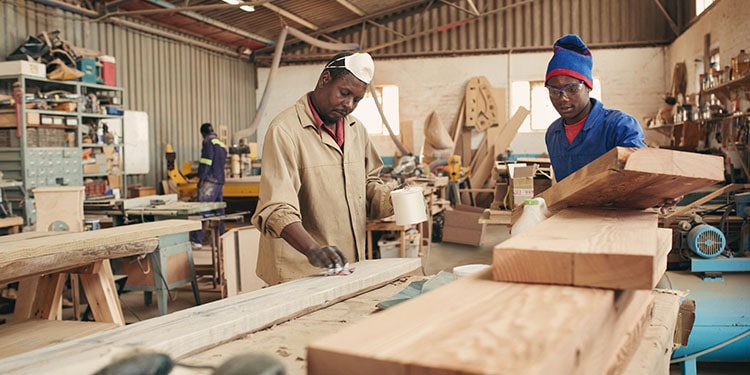
West, East, and Central Africa collectively comprise about 3.6 million square kilometers of tropical forest. These woods supply significant timber supplies that have a significant effect on industries such as furniture, fuel, and paper. Tropical Africa’s wood sector is generally made up of small informal businesses that saw logs rather than reworking them for use in buildings or other structures. Small-scale wood enterprises play a vital part in this role in this tropical region. Over 70% of the timber sector in Nigeria is made up of informal sawmills. While small-scale wood enterprises have the potential to empower domestic markets, In West Africa, these companies assist with shaping and preparing wood for the scaffolding and roofing materials used in modern buildings.
Collaboration between builders, architects, and unorganized wood businesses may result in creative methods for selecting building materials for architectural projects. The high presence of small businesses and the technical expertise of major businesses can be used to create a system that connects the two industries. In this system, the initial refinement of wood is carried out by informal businesses, while the final refinement is carried out by official companies. One way could be to license these informal wood enterprises as subsidiaries of large-scale formal industries, allowing them to benefit from taxation and financial aid from the government. The ultimate goal is to fully maximize the benefits of small-scale informal wood enterprises while creating a long-term impact on all sectors of tropical African countries.



